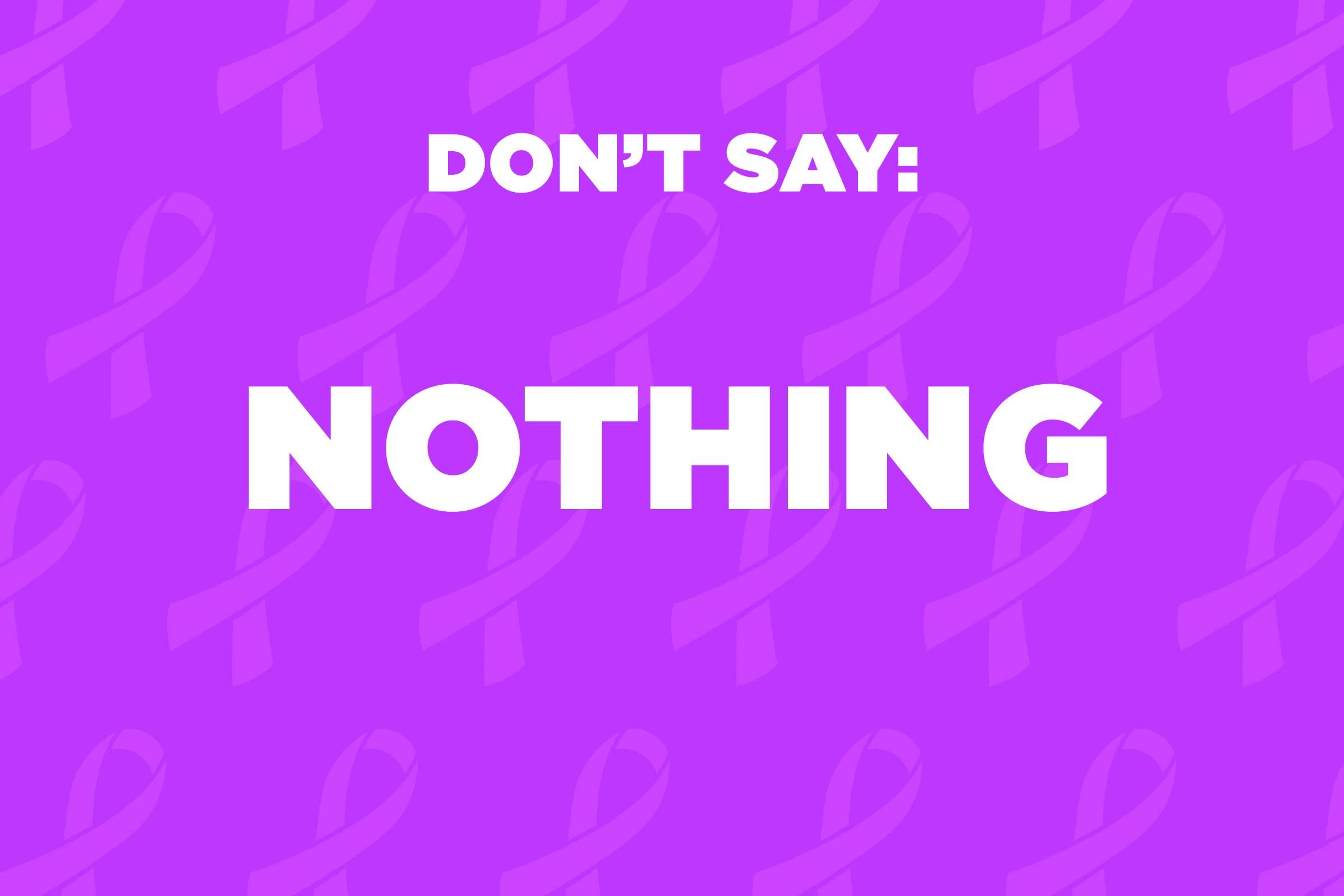
Don’t go MIA
No matter how awkward you think you’ll be around someone battling cancer, now is not the time to start avoiding that loved one. “The worst thing you can do is say nothing,” Dr. Meyers says. “A lot of people do, not out of cruelness or insensitivity, but because they just don’t know what to say or how to deal with what the response will be.” Make sure the person knows you’ll be there to help and listen through treatment and beyond. Read these cancer myths you can safely ignore.
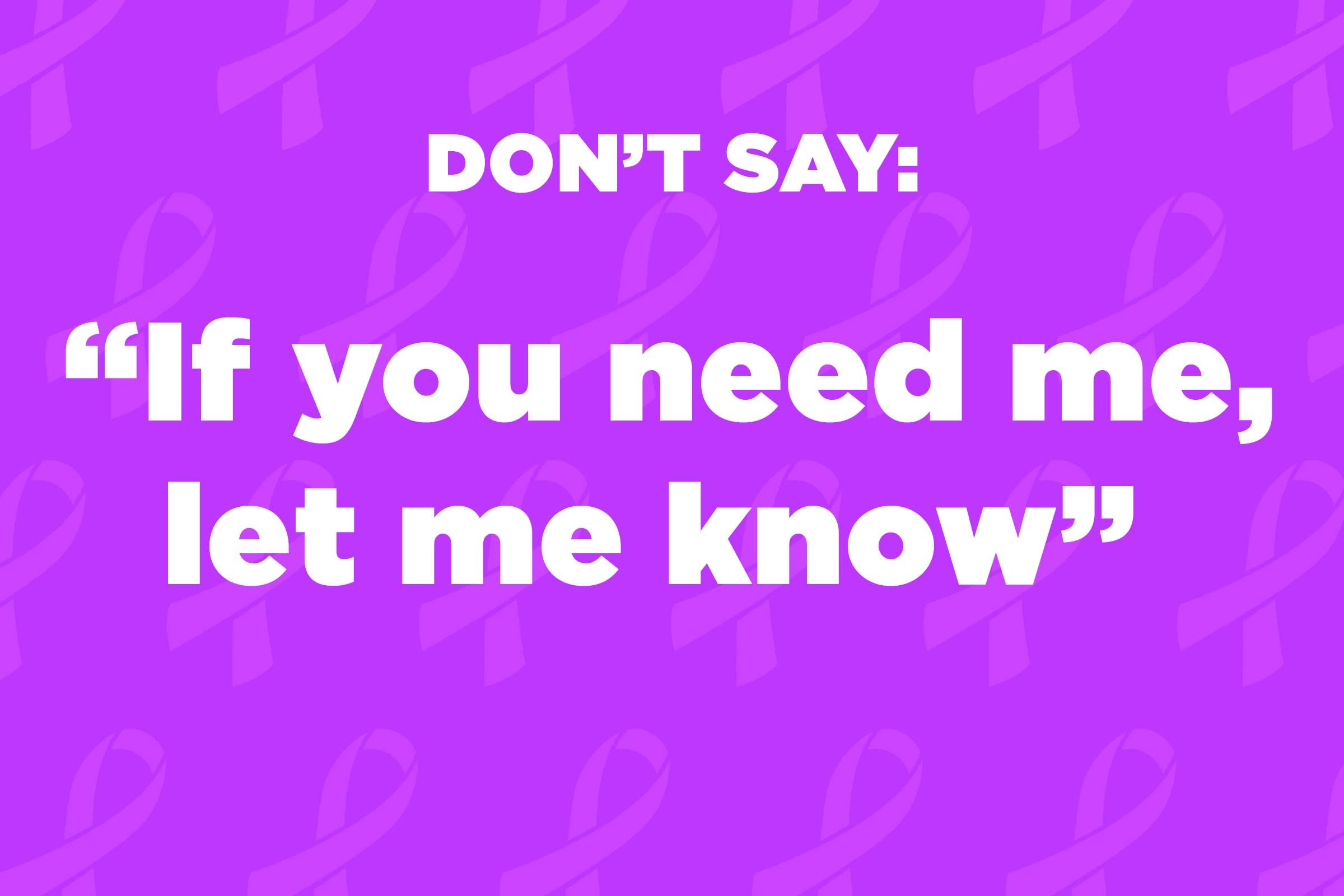
Don’t be vague
This well-meaning offer can actually put a burden on a cancer survivor because it forces that person to actively call you for help. “They feel like they’re becoming a burden,” Dr. Meyers says. “The last thing you want to do when you’re not feeling well is to call people and say, ‘I’m not feeling well enough.’” Instead of leaving your offer open-ended, volunteer to do something specific like picking up the person’s kids or dropping off a home-cooked meal. These are some of the best foods to eat during chemotherapy.
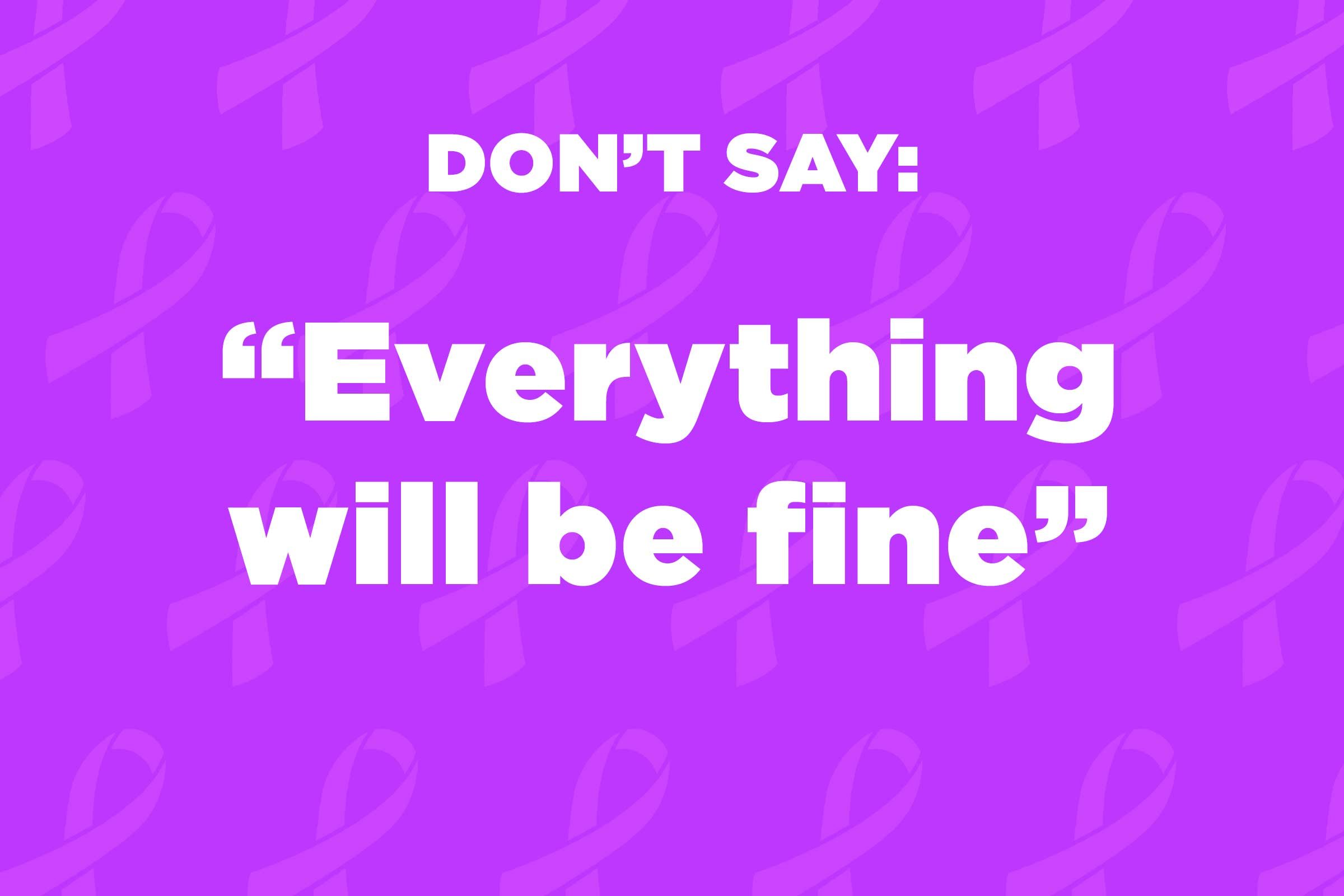
Watch for over-optimism
“That’s one of the worst things to say, even though it sounds optimistic,” Dr. Meyers says. “It takes all their fears and diminishes them.” Instead of making the person’s condition sound like just a little bump in the road, acknowledge the survivor’s pain and show that you’re there to be supportive through every tough turn. Check out these tips for emotionally coping with your own breast cancer diagnosis.
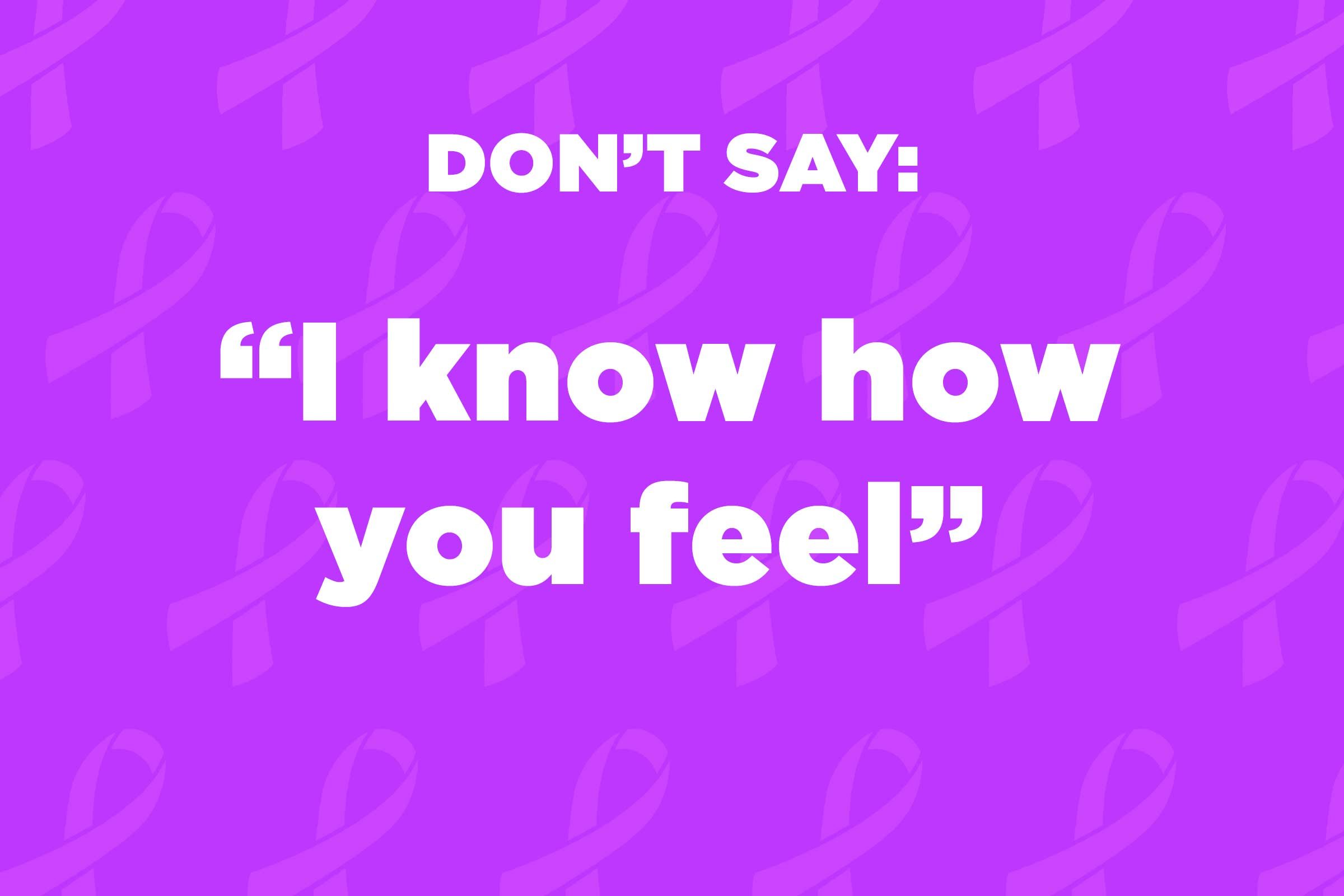
Be careful about sympathy
“You have no idea how that person feels unless you’ve been through it yourself,” Dr. Meyers says. “If you’re also a survivor, it’s fine to say because it can give them hope of a light at the end of a tunnel.” If you’ve never had cancer, don’t try to relate. Instead, just express your support and say you hope every day starts to get better, Dr. Meyers says. Here are more things people with cancer wish you knew.
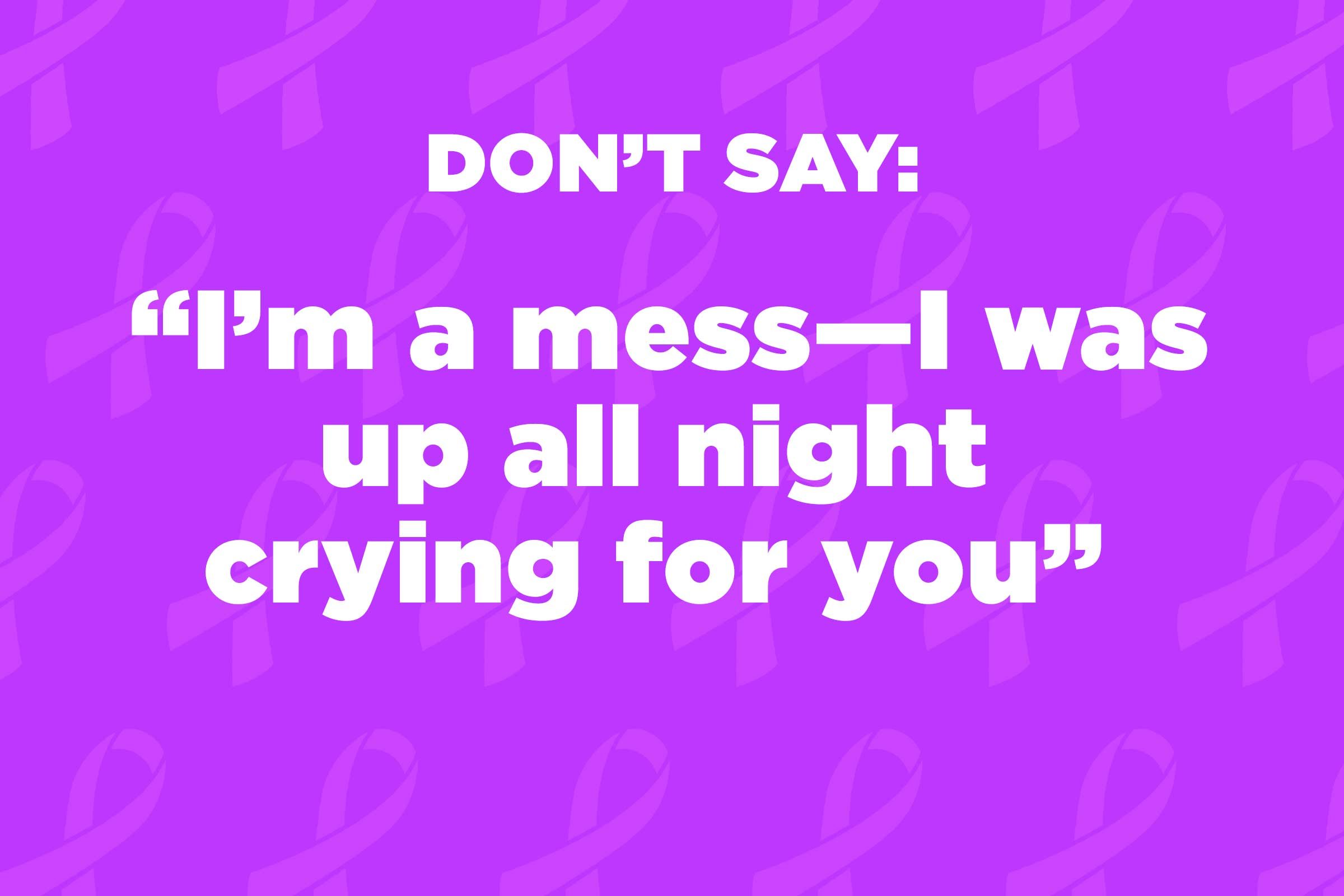
Don’t make it about you
Yes, watching a loved one deal with cancer can be draining, but it’s infinitely harder on the person with the diagnosis. Avoid “I” statements that make it sound like you’re the one suffering most. “It turns it around so the person with cancer is comforting the caregiver,” Dr. Meyer says. Putting the focus on that person’s pain rather than your own is a much better way to show support. It’s fine to express your sadness, but form it as empathy for the other person rather than the self-pity over your own fears.
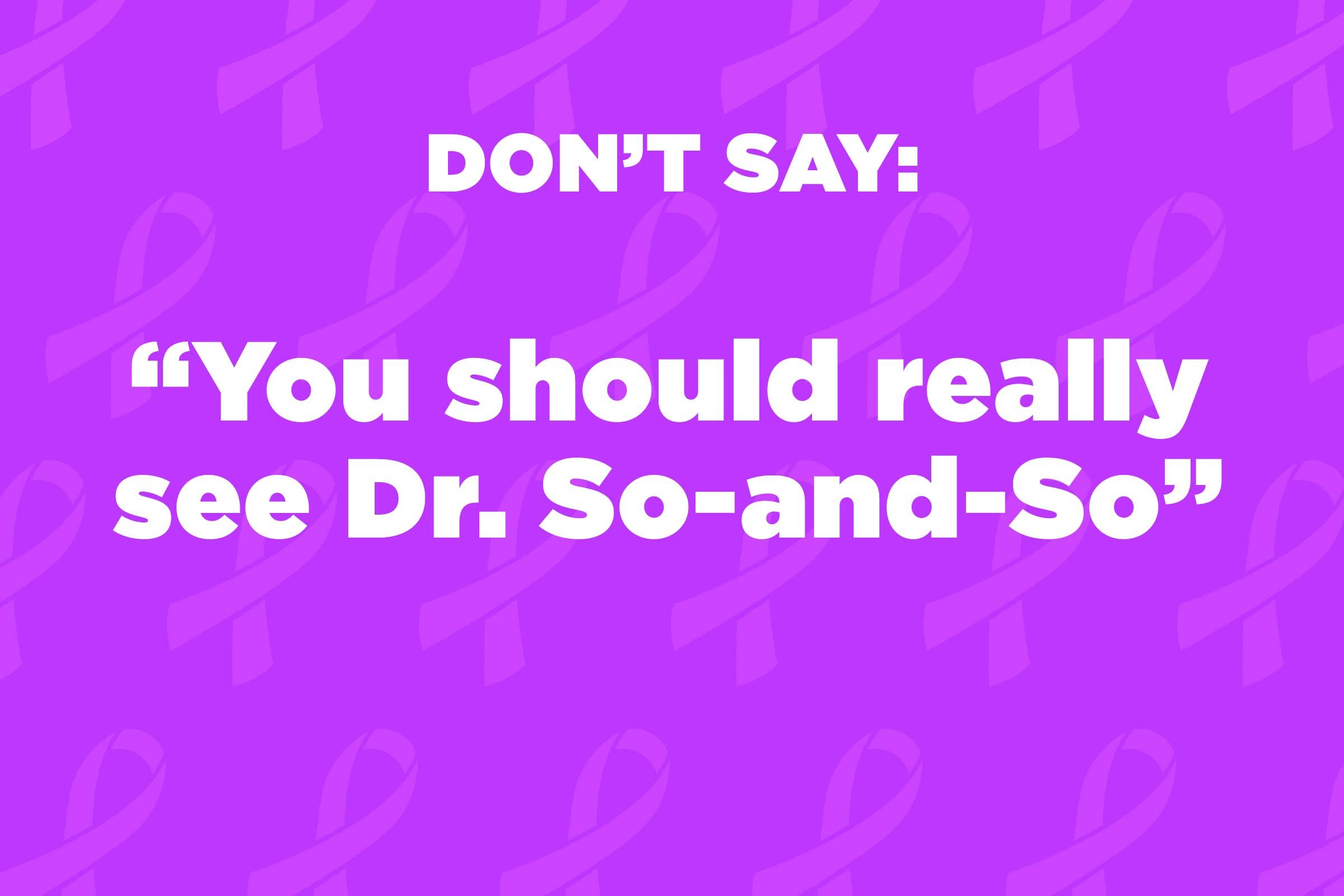
Watch out when making medical recommendations
One person’s experience with cancer is totally different from another’s, so don’t try to offer medical advice. Claiming that the person’s doctor gives bad advice or that the survivor needs to try the vitamins that worked really well for another loved one won’t help the situation. “Things that compare that person to other people are disheartening and throw people off balance,” Dr. Meyers says. Here’s what oncologists do to avoid cancer.
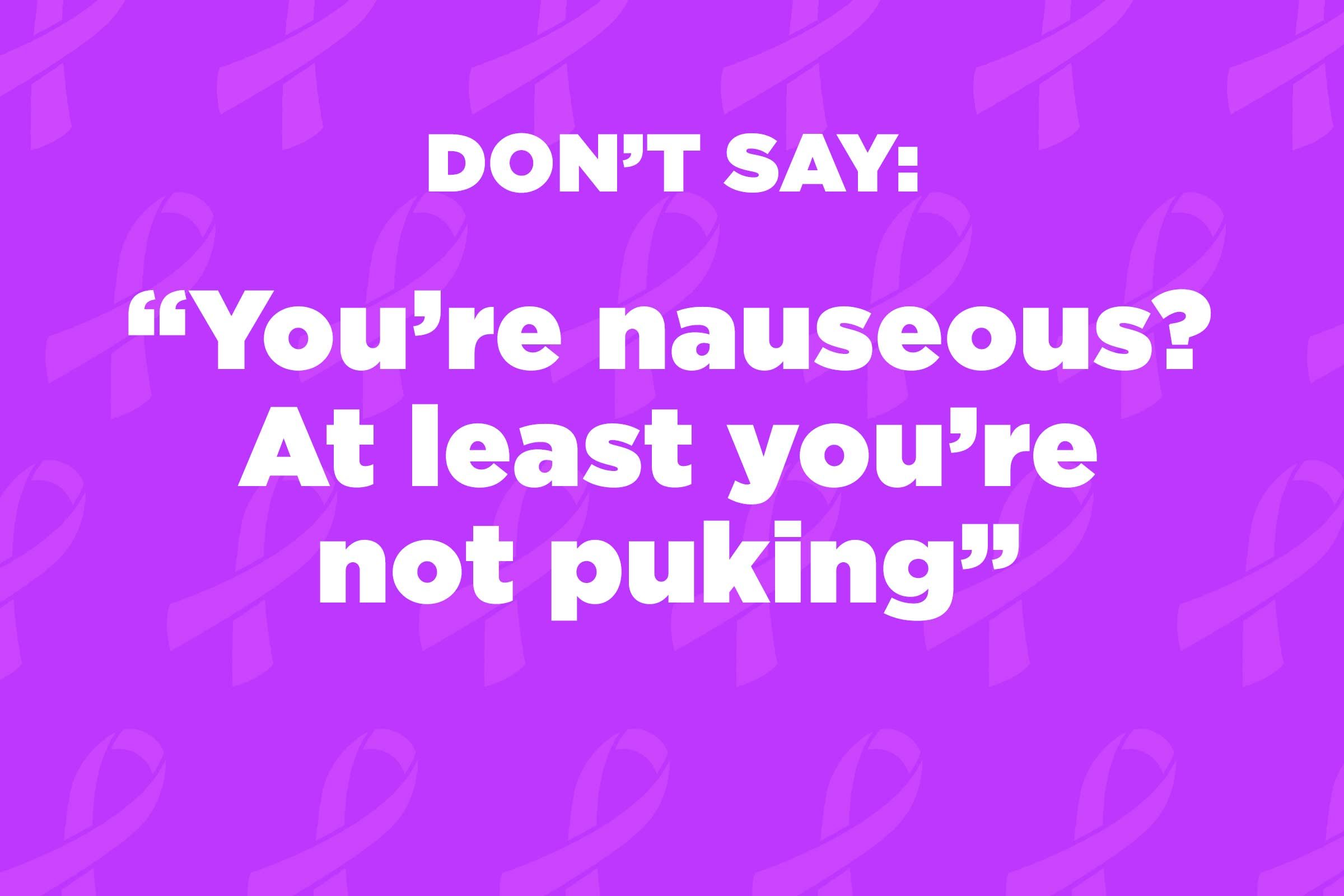
Choose empathy
“Human nature is to make the person stop complaining about it,” Dr. Meyers says. “The harder thing to do is engage in that person’s suffering.” Be empathetic and express how awful you feel about the pain the survivor is going through. If you’re close to the other person, ask about checking with the doctor about anything else that could minimize the effects—just leave the specifics up to a specialist.
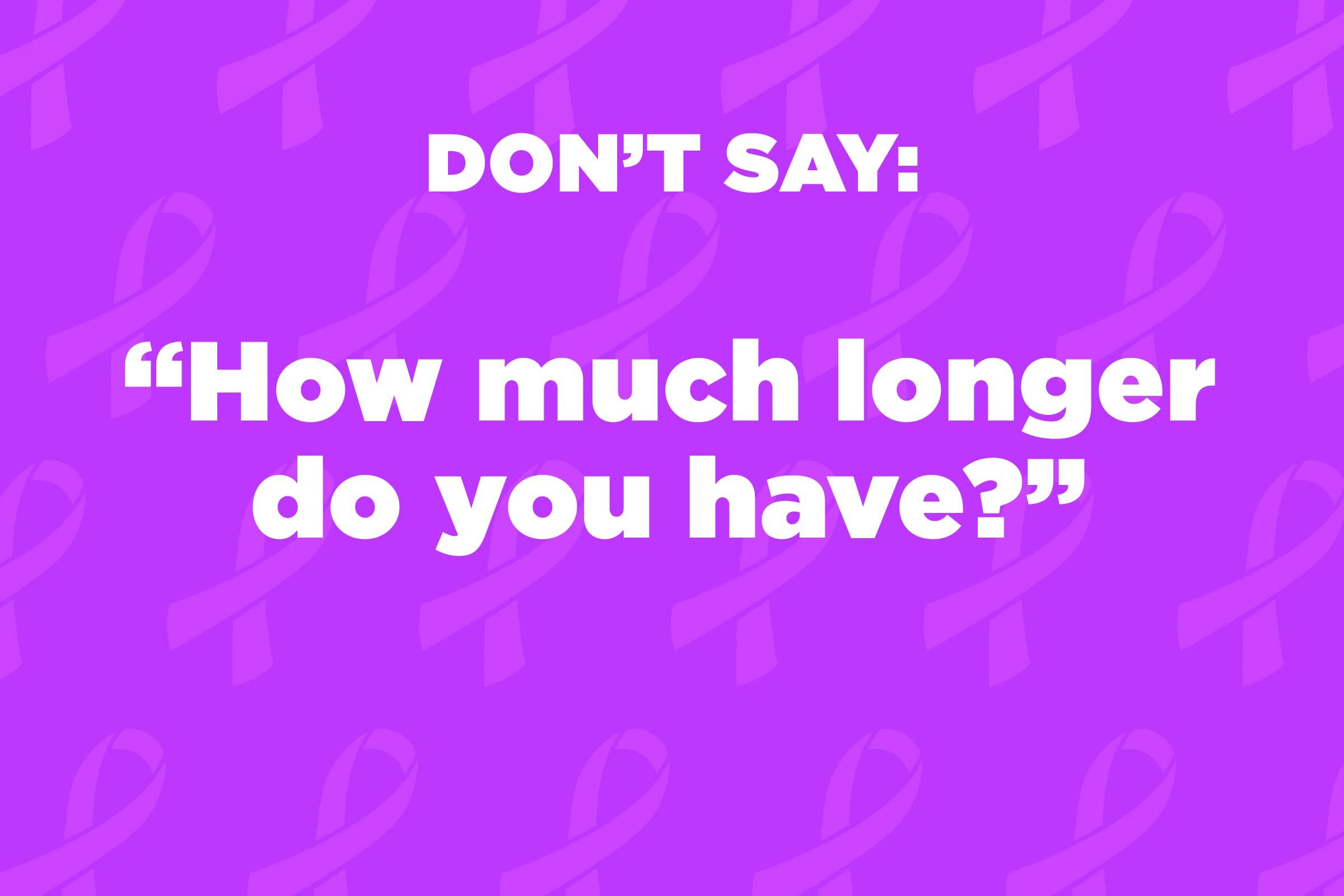
Avoid the prognosis
Don’t probe a survivor about the prognosis, or whether the cancer is gone. “Questions like that are delving way too deep,” Dr. Meyers says. “The most important thing as someone who supports someone with cancer is to be a good listener. Be there and stay there and pick up on what the person is really trying to say.” Let the other person do the talking, and don’t ask for details that aren’t offered. These little daily habits will cut your cancer risk.
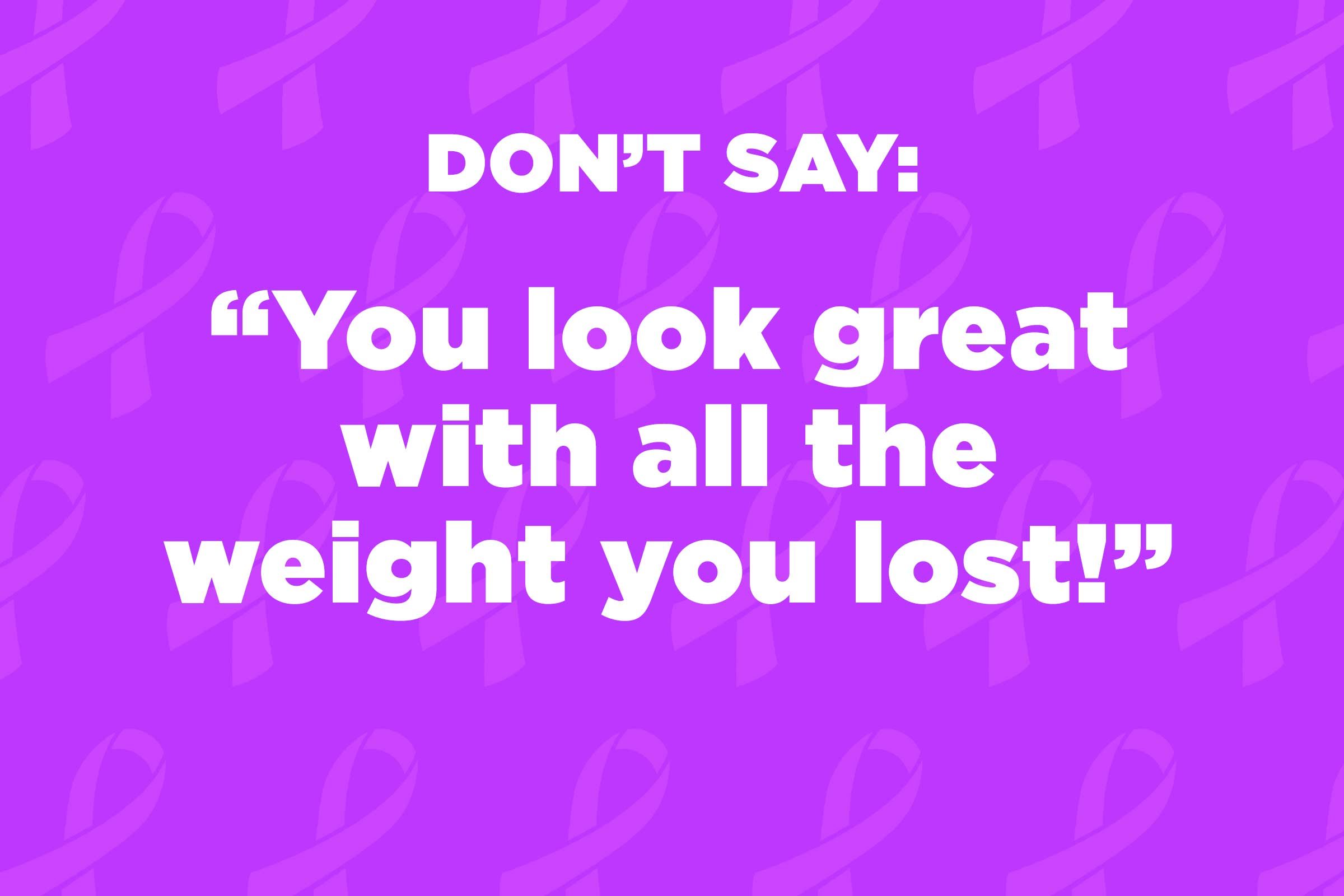
Be careful about compliments
While most people would love to drop a couple pounds, cancer is a diet regime no one wants, so don’t twist your loved one’s lack of appetite into a positive. “It sounds so god-awful to say, but it happens so often, especially around women,” Dr. Meyers says. Don’t miss this man’s cancer experience that made him grateful to be hungry.
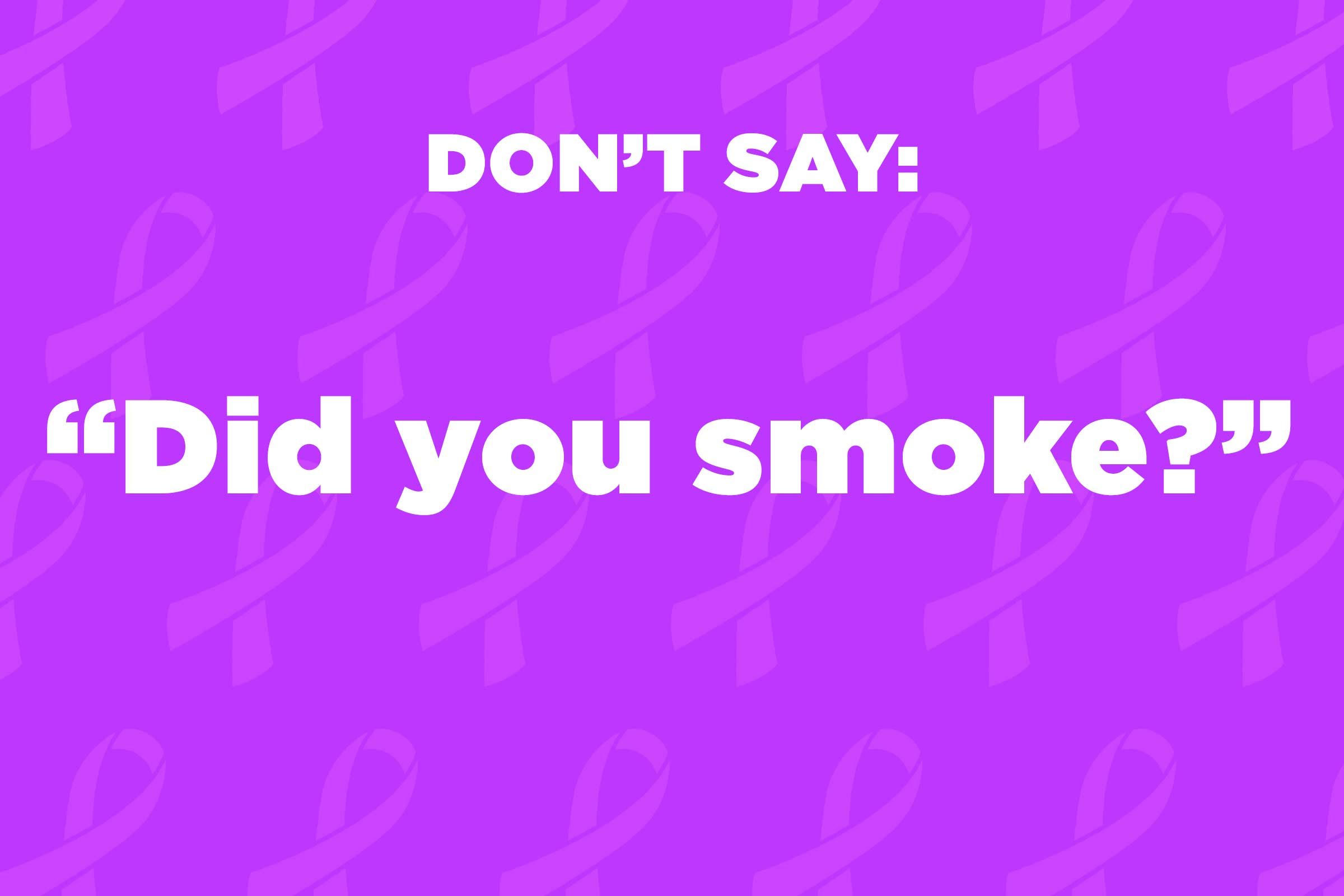
Steer clear of judgy questions
Never imply that cancer is the survivor’s fault. That means avoiding asking if they smoked, if they went tanning, or what their diet was like. “The real reason is not that the person is trying to assign blame, but the real reason is trying to find a reason why it happened to the friend and not to themselves. What they do is look for things that separate them,” Dr. Meyers says. “It’s done in a very backhanded way.” Put your energy into supporting the person who is living with the diagnosis, regardless of what factors may have caused the cancer to develop. If you don’t have the disease, avoid these things that raise your risk of cancer.